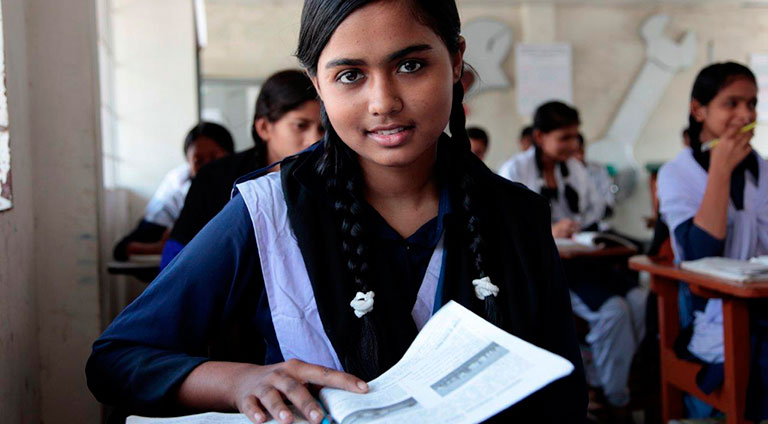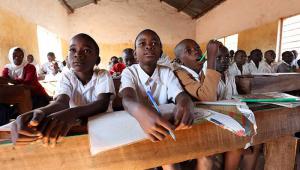school_girl.jpg

Girl in school. Credit: Ricci Coughlan/DFID
The country’s Department for International Development is to deliver the funds through the Girls’ Education Challenge, which targets girls who have dropped out of or never attended school due to family crises, poverty, child marriage or early pregnancy.
The UK’s international development secretary, Justine Greening, made the announcement at the first Girl’s Education Forum, hosted by campaign group Chime for Change and Global Citizen in London today, which brought together governments, businesses and aid agencies.
Greening said the UK had already helped 5.3 million girls in developing countries receive a quality education. It would now offer some of the most vulnerable girls “choice and control over their futures”.
“Education doesn’t just shape individuals, it shapes countries – but right now too many young girls are deprived of an education simply because of their gender,” she said. “Today’s event is about putting a spotlight on that, and focusing on what education can do to unlock prospects for girls around the world.”
As well as the 175,000 girls the funding specifically targets, DFID said the money will also be used to bolster the Girls’ Education Challenge’s support for one million disadvantaged girls across the developing world.
It is part of Greening’s pledge that the UK will help 6.5 million more girls attend school between 2015 and 2020, following the DFID’s work to give 11 million children an education from 2011-15.
Around the world, 63 million girls are out of school and over half of these are in sub-Saharan Africa. Even those that do manage to enrol in the first place have many more hurdles ahead. While 75% of girls start school in sub-Saharan Africa, only 8% finish secondary school.
Social and cultural factors, early marriage and the cost of education are some of the major barriers that prevent millions around the world from getting the education that could change their lives.
For example, research published to coincide with the event today by the the UK's Voluntary Services Overseas unearthed the kind of traditional ideas, held by both parents and teachers, about the role of girls that prevent them from getting an education in northern Uganda.
VSO found that families in the Karamoja region often stop their girls from going to school as this would mean they would fetch a lower price or dowry than if they had prepared for traditional marraige at home. At the same time, girls who do attend school are seen as lazy, immoral and as "prostitutes" who invite assault, early pregnancy and HIV. Only 13% of girls in the region finish primary school.
But evidence shows that schooling can increase a girl’s earning power, prevent early marriages and child birth, and help to break the cycle of poverty for whole families when a women does decide to have a child.
Educating women can also have substantial benefits for their communities and countries, with GDP per capita increases of 35% associated with each additional year of education.
Julia Gillard, the board chair of the Global Partnership for Education, agreed: “When we educate girls, we see reduced child deaths, healthier children and mothers, fewer child marriages and faster economic growth. I congratulate the secretary of state on today’s announcement and her pivotal leadership on girls’ education.
“Investing in girls and women isn’t just morally right: it is essential for the development of families, communities and countries.”













